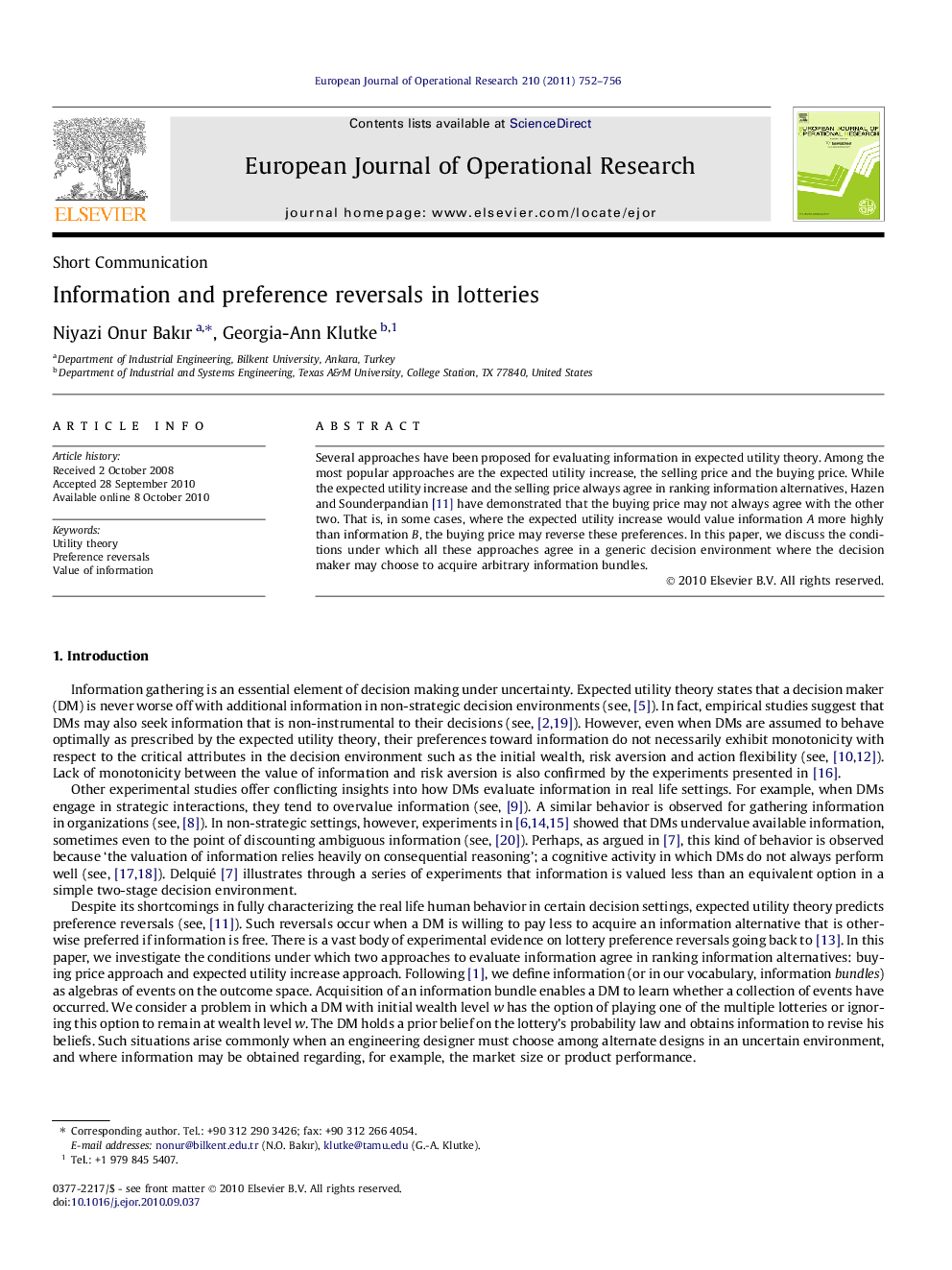| Article ID | Journal | Published Year | Pages | File Type |
|---|---|---|---|---|
| 478553 | European Journal of Operational Research | 2011 | 5 Pages |
Several approaches have been proposed for evaluating information in expected utility theory. Among the most popular approaches are the expected utility increase, the selling price and the buying price. While the expected utility increase and the selling price always agree in ranking information alternatives, Hazen and Sounderpandian [11] have demonstrated that the buying price may not always agree with the other two. That is, in some cases, where the expected utility increase would value information A more highly than information B, the buying price may reverse these preferences. In this paper, we discuss the conditions under which all these approaches agree in a generic decision environment where the decision maker may choose to acquire arbitrary information bundles.
